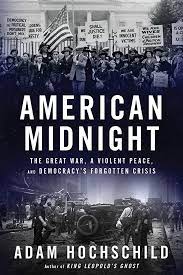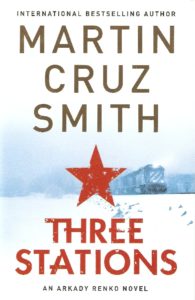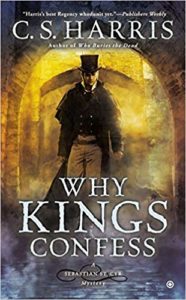Shocking and brilliant, this book delves into a period most Americans know little about, the years just after America declared war on Germany, when dark currents in American culture were at a flood tide. One of the historians the author quotes put it bluntly: “The years from 1917 to 1921 are probably unmatched in American history for popular hysteria, xenophobia, and paranoid suspicion.”
Pogroms against African-Americans were widespread, with men, women and children being burned alive or stoned to death in East St. Louis as just one horrific episode. Black soldiers at army bases could be hanged under the false charge of raping a white woman. Union members were spied on, beaten, arrested without warrants, and imprisoned. Police forces across the country formed “red squads” to surveil and harass leftists, and the U.S. Justice Department actually encouraged vigilante associations to aid in the terrorizing of American citizens.
Government and civic officials believed the craziest stories, like the one about Germany sending “gypsy fortunetellers” to Harlem to rile up people against the war. And Members of Congress broadcast delusional warnings that warned about our border with Mexico–one of which claimed Russian communists were using Japanese submarines to get to Mexico and invade the U.S. to spread chaos.
Newspapers that were perceived as “leftist” or “un-American” were bullied, threatened, censored, vandalized, or shut down because the out-of-control Postmaster General refused to let them travel through the mails.
Mainstream newspapers were basically either stenographers, repeating anything they were told to print, or worse, cheer leaders, like The Washington Post noting “In spite of such excesses as lynchings, it is a healthful and wholesome awakening.”
Jury trials were a farce and police did nothing to maintain real law and order, often assisting in the barbaric mayhem which did not shock President Wilson in the slightest. He cared about the war and his League of Nations plan–mob violence and violence against Black citizens didn’t bother him. Wilson grew up in the South with slave labor in his household and when you read about him here, you won’t be surprised that as reported in The New Yorker, Princeton students have called for “the school [to] strip the name and imagery of Woodrow Wilson from all of its institutions and buildings.”
The terror didn’t end with the war because it was followed by The Red Scare, which takes up the second half of the book. Civil rights were pulverized, many hundreds of people arrested without warrants or deported, and machine guns were positioned in city streets to “protect good Americans,” which meant Anglo-Saxons for the most part.
This was a time in which people could be arrested for what we might call “thought crime”: expressing private doubts about the war or criticism of the government. That could even extend to a judge damning people because he could read what was “in people’s hearts.” Jury trials were a farce and sentences for supposedly violating the vague, newly-passed Espionage Act were egregiously severe.
America in these years truly sounds like an authoritarian state, with a rampaging government, aided by vigilantes, peering into every nook and canny of its citizens’ lives and punishing any word or deed it thought was subversive. It’s hard not to see similarities with Nazi Germany in the manic propaganda campaign for the war and “patriotism” that bombarded Americans with signs, pamphlets, speeches, and films–and the advice to spy on one’s neighbors.
Hochschild lays all of it out in calm, cool detail that will sear itself into your memory. This is the kind of book that white-washers of our past would want to ban but which every thinking American should read.
Lev Raphael is the author of 27 books in genres from memoir to mystery. He has taught creative writing at Michigan State University and currently edits, coaches, and mentors writers at writewithoutborders.com



